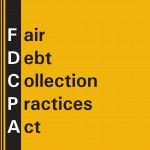
In a split decision in Marx v. Revenue Corp., a panel of the Tenth Circuit narrowly constructed the broad definition of “communication” in the Fair Debt Collection Practices Act to not include a debt collector’s fax to a debtor’s employer requesting the employer to verify the consumer’s employment. The dissent points out that the opinion ignores the very careful approach that Congress took with regard to contracting debtor’s employers in §§1692b and 1692c(b).
The court stated that the debt collector, General Revenue Corp. (GRC), faxed a form to the student loan debtor’s employer in connection with GRC’s pursuit assessment of the garnishability of the consumer’s pay:
This form displays GRC’s name, logo, address, and phone number, and bears and “ID” number representing GRC’s internal account number for Ms. Marx. The form indicates that its purpose is to “verify [e]mployment” and to “[request] em ployment information”; blanks are left for the employers to fill in the individual’s employment status, date of hire, corporate payroll address, and position, and to note whether the individual works full- or part-time.
ployment information”; blanks are left for the employers to fill in the individual’s employment status, date of hire, corporate payroll address, and position, and to note whether the individual works full- or part-time.
The court noted that GRC conceded at oral argument that if its corporate name had disclosed the nature of its debt collection business, the case would be different. The court apparently assumed that GRC’s debt collection business was secret and was unaware that there is an Internet now where googling “General Revenue Corp.” or “GRC” would immediately take the employer’s staff to the debt collector’s website where it clearly reveals it is a debt collector—information that the FDCPA forbids to be conveyed to debtors’ employers without court permission or the consumer’s consent or to obtain location information, which was not sought.
The court held the employment verification for was outside the FDCPA broad definition of “communication” in §1692a(2):
This fax cannot be constructed as “conveying” information “regarding a debt.” Nowhere does it expressly reference debt; it speaks only of “verify[ing] [e]mployment.” Nor could it reasonably be constructed to imply a debt. In order to substantiate the claim that the facsimile “conveys” information “regarding a debt,” either “directly or indirectly,” Ms. Marx had the burden of proving such a conveyance; the standard is not whether the facsimile could have had such an implication.
 The opinion does not consider recent decisions in other circuits that reject narrowing constructions of the FDCPA term “communication” nor a host of similar lower court decisions finding that a broad array of brief voicemails left by debt collectors are “communications”.
The opinion does not consider recent decisions in other circuits that reject narrowing constructions of the FDCPA term “communication” nor a host of similar lower court decisions finding that a broad array of brief voicemails left by debt collectors are “communications”.
The court appeared to use the broad FDCPA statement of purpose in §1692 to engraft a requirement that a communication must be “abusive” in the court’s eyes to violate the FDCPA. Congress specifically prohibited abusive debt collection in §1692d while making it a per se violation in §§1692c(b) and 1692b to contact an employer except if necessary to locate a consumer, with the consumer’s consent, or with the permission of a court. The court’s approach undermines the FDCPA’s requirements and emasculates one of the most important privacy and employment protections intended by Congress in the FDCPA.
The court also awarded $4,543 in costs to the debt collector on the basis that it prevailed in the FDCPA action. To do so the court had to narrowly construe §1692k(a)(3)’s requirement that the debt collector prove a harassing intent and bad faith to be awarded attorney fees or costs under the FDCPA, disagreeing with the contrary result reached by the Ninth Circuit in Rouse v. Law Offices of Rory Clark.
